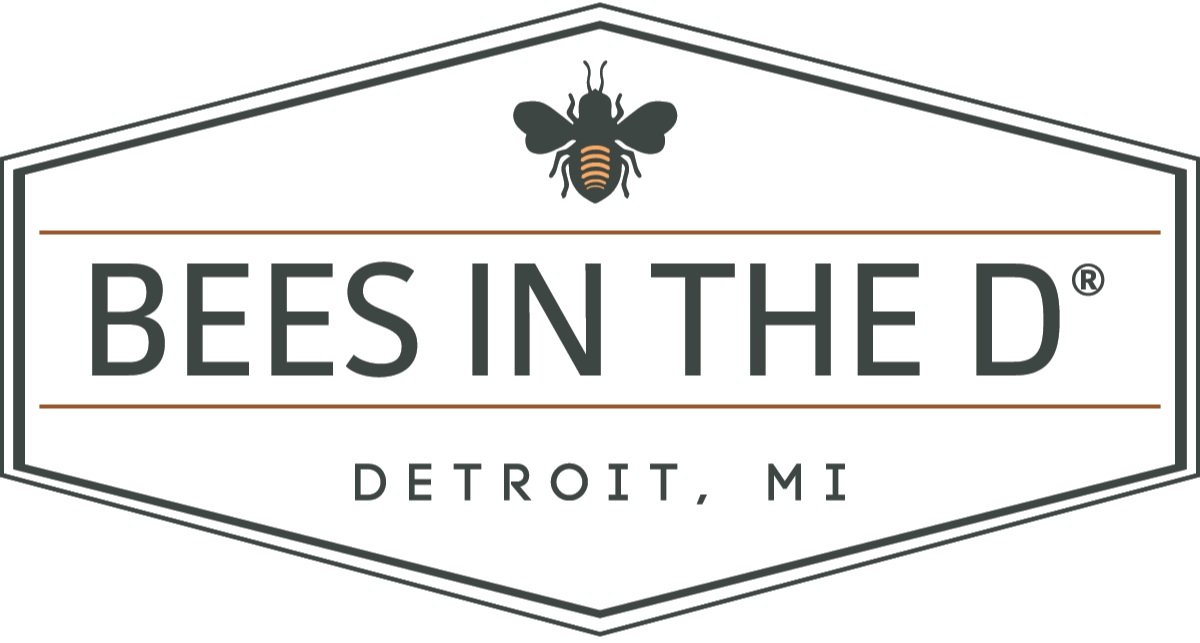
BEES IN THE NEWS: BUZZ-WORTHY SPOTLIGHTS
Bees in the D is making headlines for our work turning Detroit into a thriving pollinator haven. From local media to national features, explore how our mission is inspiring change and creating a buzz in communities near and far.

MEET THE MAKERS, MADE IN MICHIGAN: Meet Bees in the D!
When Brian Peterson first fell in love with beekeeping, he had no idea it would lead to 225 thriving hives across Detroit rooftops, gardens, and green spaces. Now, through Bees in the D, he and his husband Brian Roest are proving that even in a bustling city, bees—and the people who love them—can flourish.

Bees in the D: Making Detroit a Pollinator Paradise, One Hive at a Time
Since 2016, Bees in the D has transformed Detroit into a pollinator haven, growing from six rooftop hives to over 225 across the city. Through education, conservation, and community partnerships, co-founder Brian Peterson-Roest is proving that saving the bees means strengthening our ecosystems, food systems, and future.

Examining pollinators and the importance of bee hives
Brian Peterson-Roest, founder of Bees in the D, and Maria Mena, co-founder and CEO of Pollen Keepers of Costa Rica, sat down with CBS News Detroit Thursday to talk about their respective organizations and how they working to support the bee population.

How growing milkweed plant is essential to supporting butterfly population
According to the Center for Biological Diversity, the Monarch butterfly has declined by more than 80% in the last 20 years.

What’s the Deal With Ford, Toyota, Honda, and Other Car Companies Keeping Bees?
In addition to partnering with Chrysler, Bees in the D maintains more than 200 hives in vacant lots and other locations throughout the Detroit metro area. Bees in the D also provides free educational materials for kids, scouts, and bee enthusiasts.

A Voice for the Bees
In recent years, reports have circulated that bees are on the rebound. But Meghan Milbrath, an assistant professor at Michigan State University and coordinator of the Michigan Pollinator Initiative, says she’s seen no evidence of such.
For one thing, honeybees are not native, so their colonies are not necessarily good indicators of the overall health of bees in the state. Michigan has 465 native species, and some haven’t been seen in years. Scientists wonder about the impact of honeybees on native populations.

Detroit Is Abuzz With Sustainably-Focused Honeybee Gardens
As the city and greater metro area of Detroit adjusts to its new place in 21st-century America, it is helped along in the process by a few familiar faces– and by ‘few’, I mean several hundred thousand flying, buzzing, honey-suckling pollinators. Yes, I’m talking about bees. Bees have emerged as an unlikely source of happiness for a greater Detroit area that, in many ways, is still striving to make the transition from its role as the diesel-clogged heart of the nationwide automotive industry into something more sustainable. With the help of inspiring nonprofits like Bees In The D, a massive influx of Detroit beekeepers and bee hives are poised to help this city along with that transformation.

Bees in the D to open 'pollination center,' community garden in Detroit's Core City in 2022
Amid "Pollinator Week," designated June 21-27, BITD announced that in the summer of 2022, Detroit's Core City will be home to a pollinator center and series of botanical gardens. The center and gardens will utilize the vacant lots in Core City, helping to rebuild the neighborhood.
“We love the central location,” Roest-Peterson says. “We love the natural vibe of the Core City area that is occurring there, and we actually already have some bees at a cut flower garden that's in Core City.” The pollinator center will house different plants and bees, providing exposure and education to the community.

A pollinator paradise
When it comes to creating an appetizing backyard habitat for bees, butterflies and other pollinators, MSU Extension’s Senior Horticulture Educator Rebecca Finneran borrows an expression from the 1989 Kevin Costner classic, “Field of Dreams”: If you build it, they will come.
“Habitat is habitat,” said Finneran. “It doesn’t have to be a pollinator garden. Our entire landscape can be a pollinator garden.”
Still, if you want to do your part to help the pollinators upon which our food chain relies, there are ways to do it and it’s about being thoughtful and intentional with what you plant. Use a mix of plants that bloom throughout the year, from spring to late fall, and steer clear of too much mulch and especially pesticides, experts say.

Bringing Back the Bees: How One Beekeeper Is Helping Bees All Across the State
Bringing Michigan bee numbers back is going to take more than beekeepers and legislators, Milbrath said, especially if you want to see native bees, like bumblebees, long-horned bees and mason bees.
“It really does taking lots of people evaluating [their choices],” Milbrath said.
Bee enthusiasts and educators are going out to inform the public about the role that bees play in agriculture and the environment and how they can help.
As Peterson-Roest has learned, bees don’t only thrive in rural pastures and sprawling farmland. Instead, bees like biodiversity, meaning small, individual gardens can help give native bees the food they need.

